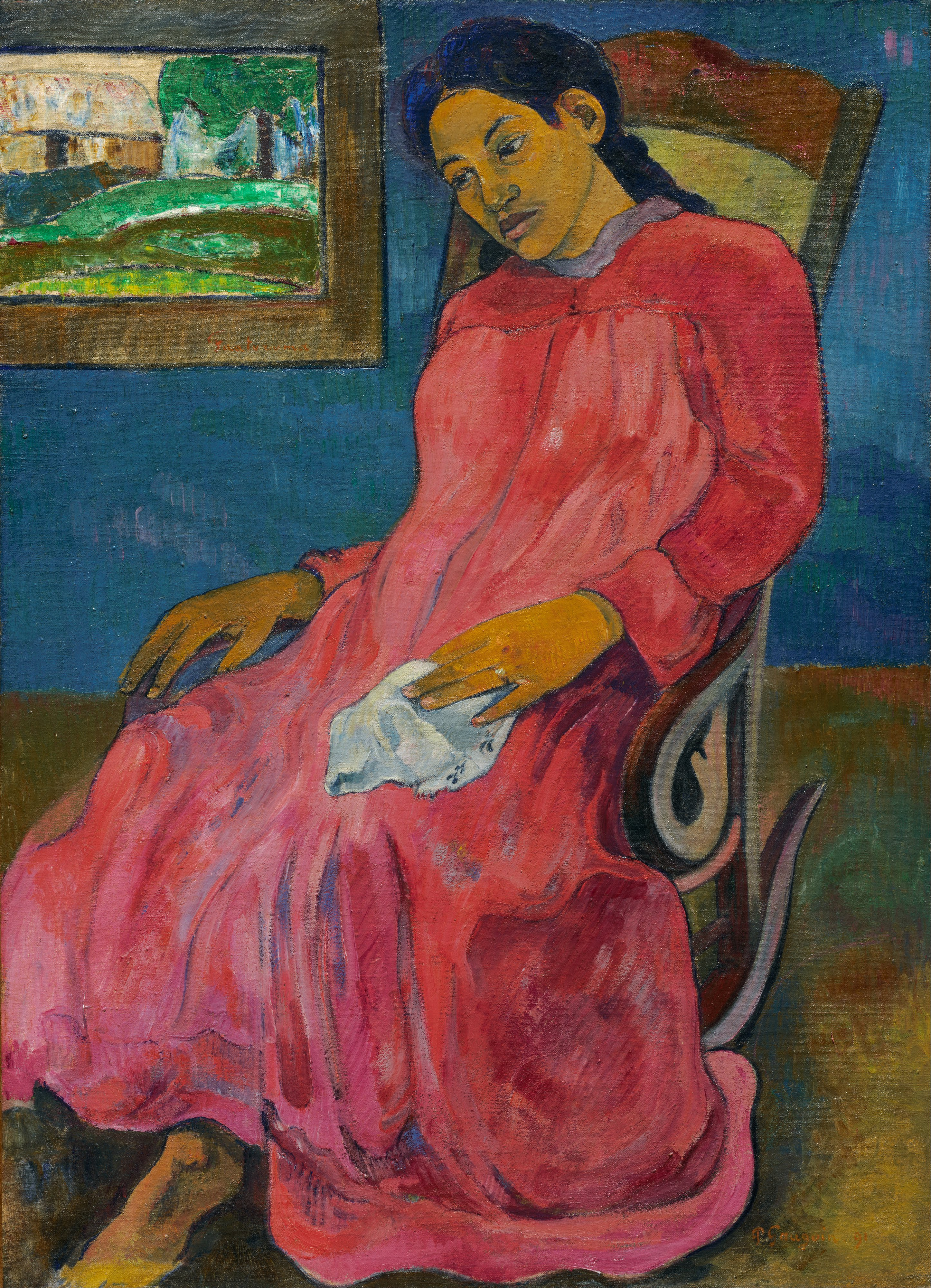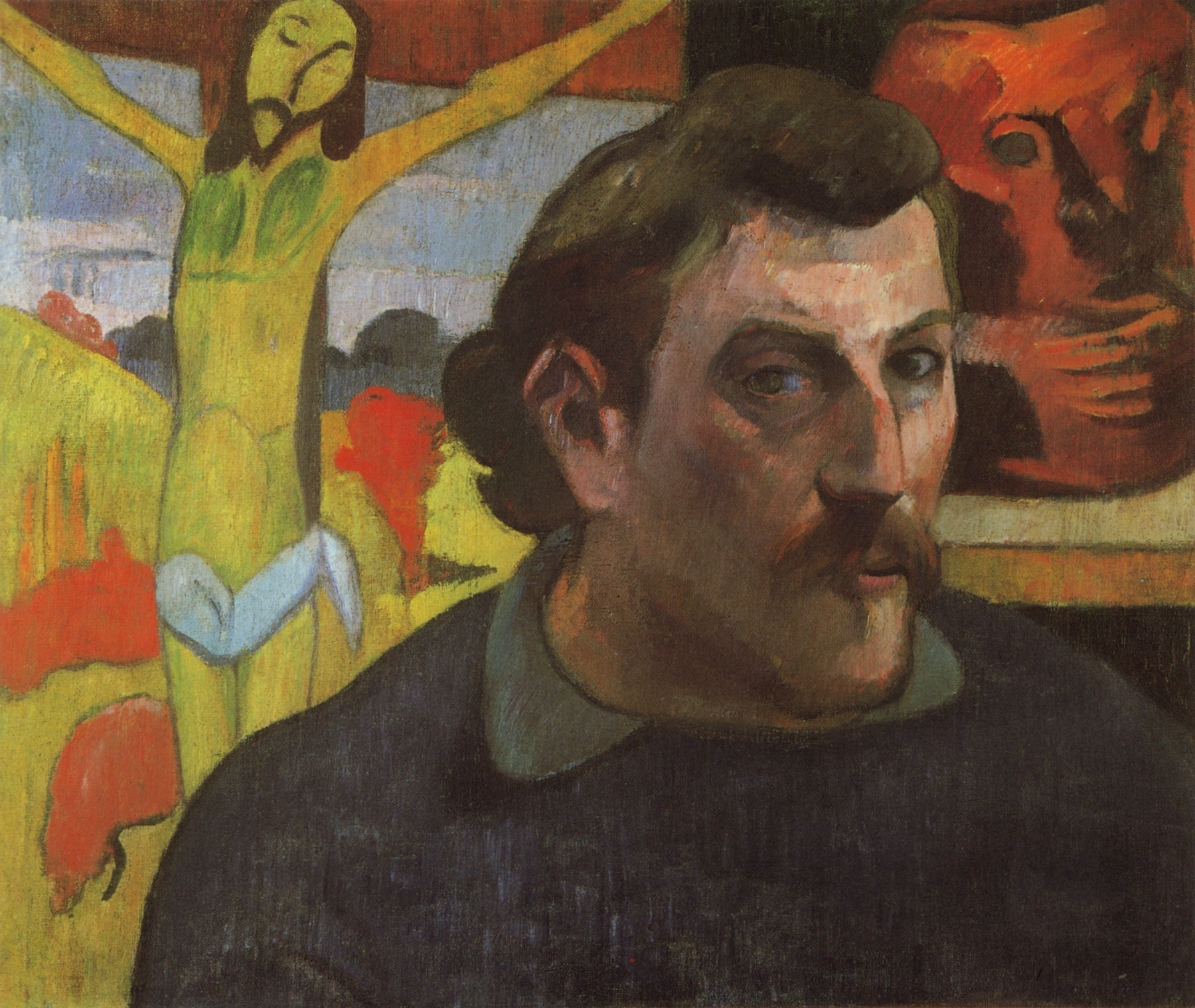Paul Gauguin's non-naturalistic use of color and form had already become part of his style before he left France for Tahiti, where this picture was painted. Gauguin's vision of the South Pacific, where he hoped to experience an artistic renewal, was of an earthly paradise of mystery and magic in complete contrast to the urban culture of modern Europe. Faaturuma, the title of this painting, is taken from an inscription on the frame of the painting represented in the upper left corner. In Tahitian, the word refers to an overcast sky, and Gauguin uses it metaphorically to imply a troubled state of mind. The fixed, lowered gaze and languished form of the young woman combine with iridescent color and sinuous drawing to evoke a melancholy reverie.




Faaturuma (Melancholic)
oil on canvas • 93,98 x 68,26 cm
 Paul Gauguin
Paul Gauguin